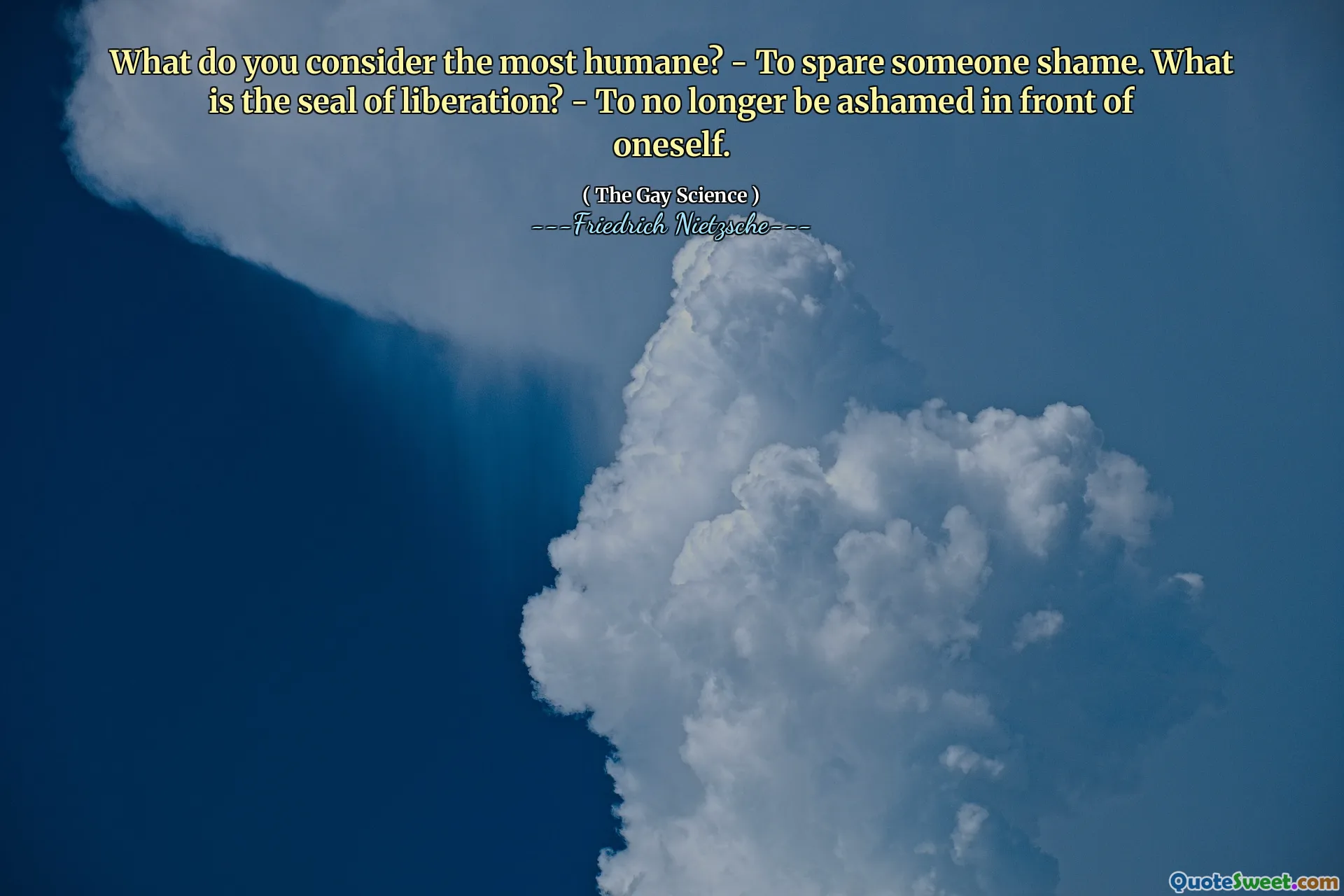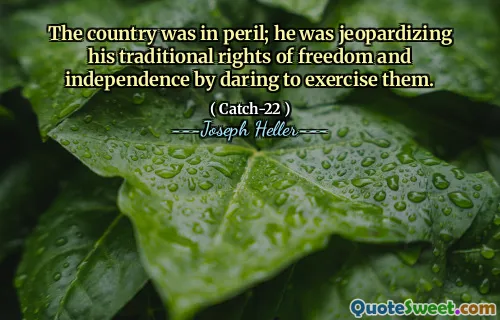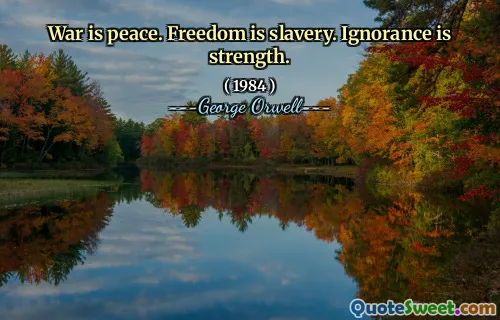
What do you consider the most humane? - To spare someone shame. What is the seal of liberation? - To no longer be ashamed in front of oneself.
This quote touches on profound aspects of human dignity and emotional freedom. The idea that considering the greatest act of kindness as sparing someone shame highlights how central shame is to the human experience. Shame often acts as an internal barrier, restraining individuals from expressing their true selves or pursuing what they desire. By alleviating shame, we foster a sense of safety and acceptance, enabling genuine authenticity. Liberation, as described, is not merely an external conquest but an internal state—being free from self-imposed shame means that one has achieved a form of psychological emancipation, allowing self-acceptance to flourish. In a society where shame is often used as a tool for control or judgment, the path toward inner freedom involves recognizing and shedding these layers of self-criticism. It requires honest self-awareness and courage to confront our vulnerabilities and societal labels that threaten our sense of worth. Celebrating embracing one’s true self without shame marks the culmination of genuine liberation. This process is deeply personal yet universally relevant, regardless of cultural or life circumstances. Understanding that liberation begins internally helps foster empathy and compassion towards oneself and others, promoting a more humane and accepting world where shame no longer dictates how we perceive ourselves or others. Ultimately, Nietzsche’s insight urges us to prioritize inner integrity over societal approval and destructive judgments—an essential step toward authentic happiness and psychological freedom.






